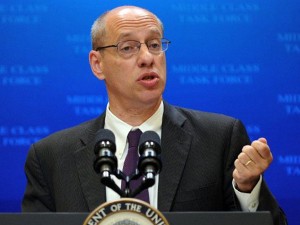WASHINGTON – A top US regulator urged Congress Wednesday to enact an online privacy law that includes “do not track” mechanisms for consumers on the Internet, amid indications of a split among lawmakers.
“Most consumers are entirely unaware of the vast amounts of data about them being sold and collected about them, both online and offline,” Federal Trade Commission chairman Jon Leibowitz told a US Senate panel.
“People shouldn’t be putting things in your computer without your consent,” Leibowitz said, adding that the debate is moving to “not whether ‘do not track’ will exist but how it will be implemented.”
Leibowitz said an FTC report calls for final implementation of a “do not track” mechanism and general privacy legislation that would cover issues such as data security, breach notification and regulation of data brokers.
The FTC chief said key industry leaders support the measures but that details need to be worked out.
Senator Jay Rockefeller, head of the Commerce Committee which held the hearing, said he hopes to bring privacy legislation up for a vote this year.
“Protecting consumer privacy is critical for all companies – people need to trust the websites that they are visiting,” Rockefeller told the hearing.
“But online companies are conflicted. They need to protect consumers’ information, but they also need to be able to monetize their users’ data. I am afraid that in the hyper competitive on-line marketplace the need to monetize consumers’ data and profits will win out over privacy concerns.”
But Republican Senator Patrick Toomey said he was skeptical about the need for new legislation.
“It’s important for companies to have maximum flexibility,” Toomey told the panel.
“Companies are already competing on privacy… if consumers don’t trust company A they can go to company B.”
He said legislation could jeopardize the benefits consumers are enjoying online from companies that profit from data collection.
“The benefits are clear. Facebook is free, Google is free… less information is likely to result in fewer free online services and an increase in paywalls.
“I have not heard a persuasive argument as to why the FTC needs additional authority,” Toomey added.
The FTC report released earlier this year said consumers should have a meaningful way to control the tracking of their online activities.
The hearing comes amid growing concerns about privacy policies of companies such as Facebook and Google, which glean vast amounts of information about its users online habits to be able to deliver targeted ads.
Google rolled out a new privacy policy this year allowing the firm to track users across various services to develop targeted advertising, despite sharp criticism from US and European consumer advocacy groups.
A recent study meanwhile found many users of Facebook are unaware of the privacy risks from the massive social network site or fail to take adequate precautions.
The Consumer Reports report found nearly 13 million US Facebook users do not use, or are not aware of the site’s privacy controls.
